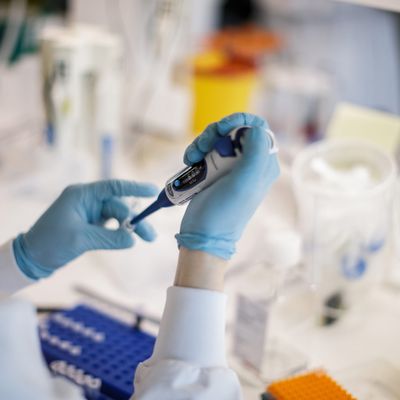
We’re committed to keeping our readers informed.
We’ve removed our paywall from essential coronavirus news stories. Become a subscriber to support our journalists. Subscribe now.
As the World Health Organization launches trials for potential treatments for COVID-19, scientists studying the coronavirus are encouraged that its low mutation rate could mean that a single vaccine is possible.
According to researchers who spoke with the Washington Post, there are only around four to ten genetic differences between the coronavirus strains that have infected Americans and those of the original virus in Wuhan. “That’s a relatively small number of mutations for having passed through a large number of people,” Peter Thielen, a Johns Hopkins molecular geneticist, told the Post. “At this point, the mutation rate of the virus would suggest that the vaccine developed for SARS-CoV-2 would be a single vaccine, rather than a new vaccine every year like the flu vaccine.” Rather, a potential coronavirus vaccine would act more like those for the measles or chicken pox, in which one shot grants immunity for a substantial amount of time.
According to the current research, the virus that causes COVID-19 has a low “error rate,” meaning that its pace of mutation remains slow despite its rapid spread. Because it remains more or less stable as it travels through hundreds of thousands of patients, researchers state that it is less likely to become more dangerous (or less) as it spreads. “The virus has not mutated to any significant extent,” University of Iowa virologist Stanley Perlman said. “Just one ‘pretty bad’ strain for everybody so far. If it’s still around in a year, by that point we might have some diversity.”
Though researchers who spoke with the Post did not identify a possible timeline for a vaccine, one biotech firm hopes that trials could be ready as soon as the fall — though more conservative estimates suggest next year at the earliest.






























